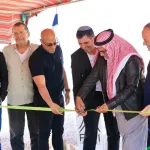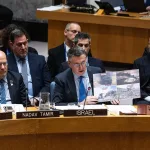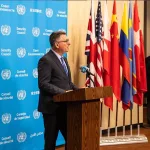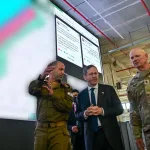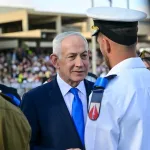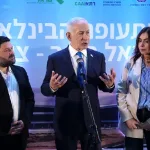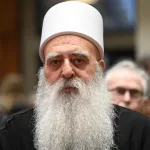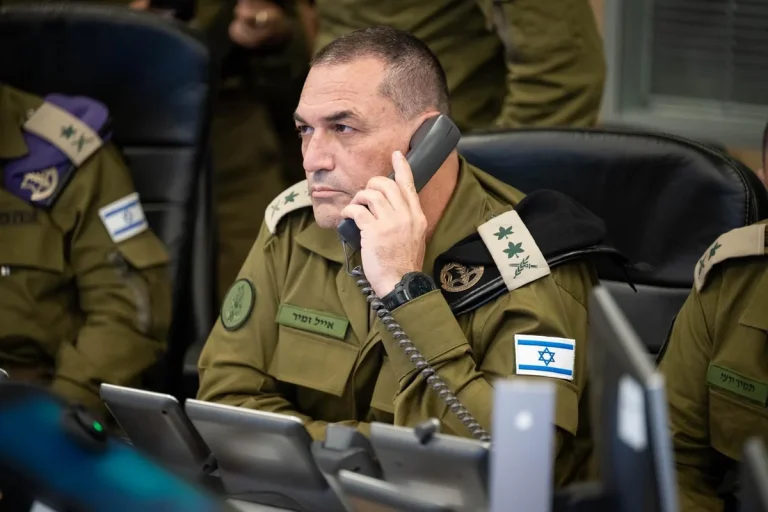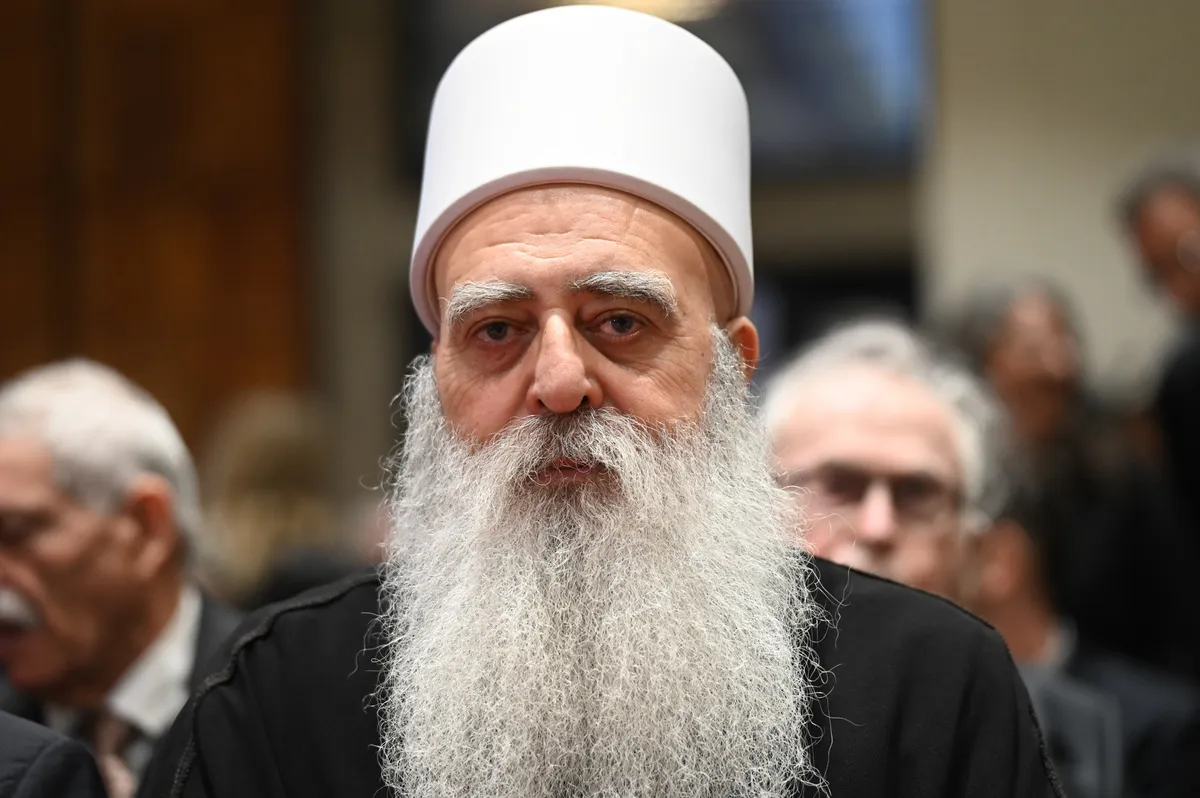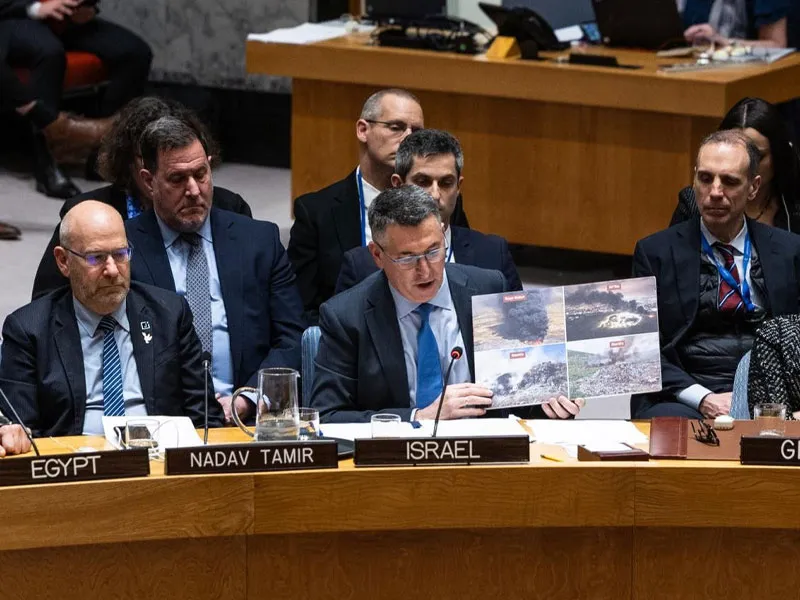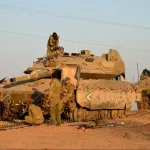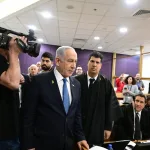Jerusalem, 10 September, 2025 (TPS-IL) — An Israeli airstrike on Tuesday struck a high-level gathering of Hamas leaders in Qatar, marking one of the most significant attacks on the group’s senior leadership since the October 7 massacre. Israeli authorities have not confirmed which figures, if any, survived, and the full impact of the strike remains uncertain. The meeting reportedly included several of Hamas’s most influential political and military figures.
Khalil al-Hayya, 65, the deputy of the late Yahya Sinwar, is believed to have been present. A veteran of the First Intifada, al-Hayya served three years in Israeli prison in the early 1990s for terrorism-related activities. He later earned a degree from the Islamic University of Gaza, where he also taught, and entered politics, winning election to the Palestinian Legislative Council in 2006. He rose to deputy head of Hamas’s Gaza politburo in 2017 and joined a five-member acting leadership council following Sinwar’s death in October 2024.
Al-Hayya most recently commanded the Izz ad-Din al-Qassam Brigades and led negotiations over hostages and ceasefires, often insisting on U.S. guarantees while rejecting disarmament or exile. He resides primarily in Qatar and Lebanon and is married with seven children.
Khaled Mashaal, 69, former head of Hamas’s politburo, was reportedly at the meeting. As a longstanding leader of Hamas’s diaspora branches, Mashaal has coordinated operations internationally and navigated tense relations with Iran. Based in Qatar, he amassed significant wealth through real estate and investments, surviving an Israeli assassination attempt in Jordan decades ago.
Zahar Jabarin, 55, is widely recognized as Hamas’s finance chief and a key architect of its operations in Judea and Samaria. In the early 1990s, he recruited the notorious Hamas bombmaker Yahya Ayyash and helped establish the organization’s West Bank network. Jabarin spent 18 years in Israeli prison before being released in the 2011 Gilad Shalit prisoner exchange, after which he was deported first to Syria and then to Turkey, working under Saleh al-Arouri. He later returned to a leadership role overseeing finance and terror operations and has been central to Hamas’s hostage negotiations.
Jabarin is viewed as the financier of the October 7 attack.
Musa Abu Marzouk, a founding member of Hamas and Mashaal’s deputy, oversees the group’s external affairs. Expelled from Jordan in 1995, he spent nearly two years in U.S. custody before returning to Jordan. Based in Qatar, Marzouk manages Hamas’s international relations, including ties with Russia, and has led delegations for wartime negotiations. He has a reported personal fortune of $3 billion, amassed from multiple business ventures he controls.
Nizar Awadallah, 68, a senior member of Hamas’s political bureau, has been based in Qatar since leaving Gaza prior to the war. Awadallah narrowly lost a past bid to lead the politburo and later became a member of the five-person leadership council after the assassinations of two bureau chiefs. Known for his role in diplomacy and coordination, he has been involved in planning and negotiating strategies for the group during the ongoing conflict.
Mohammed Darwish, a Lebanese-born senior Hamas official, has long been central to managing the organization’s finances. Serving as chairman of Hamas’s Shura Council, one of its primary decision-making bodies, Darwish became a member of the leadership council following the deaths of previous bureau heads. He has been closely involved in ceasefire and hostage negotiations and remains a key figure in the group’s leadership structure.
Other prominent Hamas leaders assassinated by Israel during the nearly two-year war include Yahya Sinwar, who masterminded the October 7 attacks; Sinwar’s brother Mohammed; Ismail Haniyeh, who was killed in Tehran; Mohammed Deif, an elusive Hamas commander; and Salah Arouri, who oversaw Hamas terror operations in Judea and Samaria.
Approximately 1,200 people were killed, and 252 Israelis and foreigners were taken hostage in Hamas’s attacks on Israeli communities near the Gaza border on October 7. Of the 48 remaining hostages, about 20 are believed to be alive.







